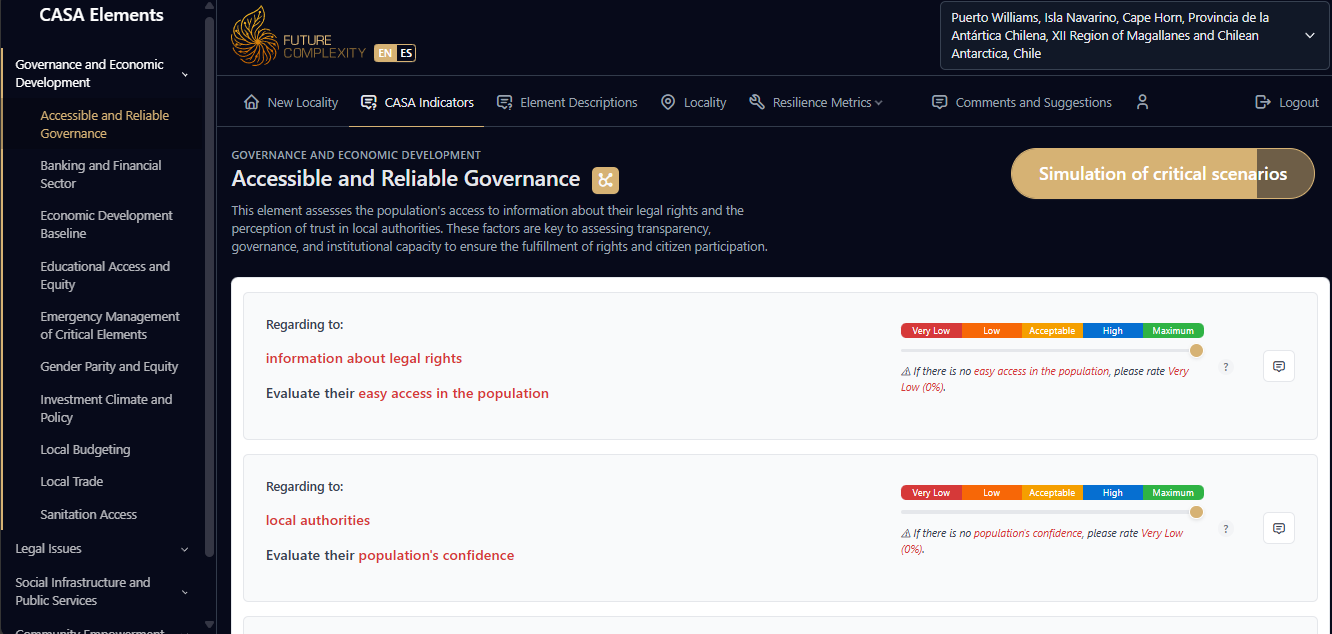The CASA Tool (Complex Analysis for Social Adaptation), developed by the interdisciplinary research team of the Complex Society Lab and Infinitum Humanitarian Systems (IHS), is being presented throughout July in a series of strategic venues as part of its outreach to key stakeholders in the academic, institutional, and risk management fields.
In this context, CASA has been showcased in meetings with representatives from defense agencies, universities, and centers specialized in resilience, environmental security, and disaster management in both the United States and Spain. These presentations have taken place within frameworks linked to international cooperation and the strengthening of institutional capacities in the face of complex scenarios.
CASA is a model grounded in Complexity Science and enhanced by Artificial Intelligence. It enables the integration of up-to-date, territory-specific data, offering simulations to optimize resource allocation in crisis scenarios and anticipate actionable strategies in the face of disruptive events. The tool’s versatility has been especially appreciated during these presentations, opening opportunities for its adoption in various local and international initiatives requiring a deep and adaptive understanding of territories.
The presentations included the participation of prominent authorities, among them:
- Sonia Wolff – Associate Science Director at ONR Global.
- Rebecca Goolsby – Program Officer, Researcher, and Administrator for Navy programs.
- Diogenes Placencia – RDT&E Portfolio Manager, J3-1, Science, Technology & Innovation Division, U.S. Southern Command; Research Scientist, Quantum & Optoelectronics Branch, Naval Research Laboratory.
- Rosa María Benito – Full Professor at Universidad Politécnica de Madrid; Director of the Complex Systems Group.
- Karleen Sudol – Program Manager, Adaptation and Resilience Office, Center for Excellence in Disaster Management and Humanitarian Assistance (CFE-DM).
- Michelle Devlin – Professor of Environmental Security at the U.S. Army War College; Professor of Arctic Health and Human Security at the National Science Foundation’s UNI ARCTICenter.
The dissemination process will continue over the coming months.
